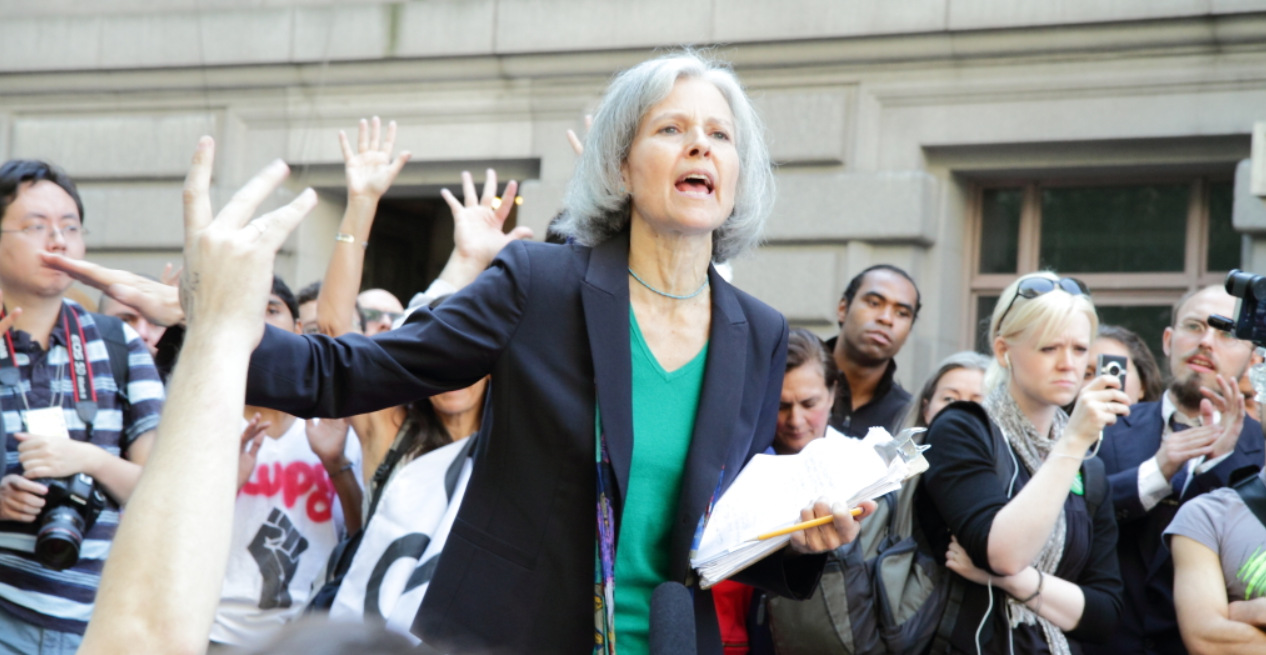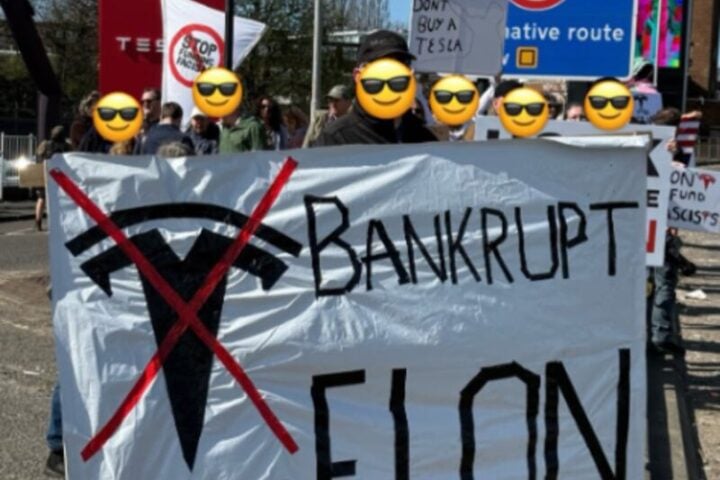Green politicians from across Europe called on the U.S. Green Party presidential candidate Jill Stein on Friday to withdraw from the race for the White House and endorse Democrat Kamala Harris instead.
Electoral calculus shows razor-thin margins in key battleground states, with Harris polling at 48% and Trump at 46% as of October 30, 2024. Political scientists note that in states like Michigan, where electoral vote distribution follows winner-take-all rules, even minor vote share shifts of 1-2% could determine Electoral College outcomes.
“We are clear that Kamala Harris is the only candidate who can block Donald Trump and his anti-democratic, authoritarian policies from the White House,” Green parties from Germany, France, Denmark, Italy, the Netherlands, Ireland, Estonia, Belgium, Spain, Poland and Ukraine said in their press release.
Electoral dynamics show Stein polling between 1.1% and 1.4% in nearly every critical state. Political demographers highlight particular impact potential in the Blue Wall states–Michigan, Wisconsin, and Pennsylvania–where thin margins could prove decisive in Electoral College outcomes.
A poll conducted by the Council on American-Islamic Relations reveals 42% support for Stein among Michigan’s Muslim voters, largely driven by her position on Middle East policy. This demographic concentration in key swing states adds another layer of electoral complexity.
“Right now, the race for the White House is too close for comfort,” the European Greens’ statement emphasized. “We call on Jill Stein to withdraw from the race, and endorse Kamala Harris for the presidency of the United States.”
Regarding climate policy stakes, UN Secretary-General António Guterres warned about potential U.S. withdrawal from global climate frameworks: “We don’t want a crippled Paris Agreement. We want a real Paris Agreement.” Environmental policy analysts note that Trump’s previous administration saw the U.S. become the first nation to exit the Paris Agreement.
Similar Posts
Representative Alexandria Ocasio-Cortez offered pointed criticism of Green Party electoral strategy: “All you do is show up once every four years to speak to people who are justifiably pissed off, but you’re just showing up once every four years to do that, you’re not serious. To me, it does not read as authentic. It reads as predatory.”
The ideological rift between European and American Greens runs deep. “The US Greens are no longer a member of the global organization of Green parties,” the European coalition noted, citing “serious policy differences on key issues including Russia’s full scale assault on Ukraine.”
Political scientists studying electoral systems point to structural barriers facing third parties. The U.S. Green Party advocates electoral reform: “We invite them to support our demand for a national popular vote by ranked-choice voting (RCV) for president, which would eliminate the alleged spoiler factor.”
Historical parallels exist; analysis of the 2000 election showed Green Party candidate Ralph Nader receiving 97,488 votes in Florida, where George W. Bush’s margin of victory over Al Gore was 537 votes. However, exit polling demonstrated that simple vote transfer assumptions often oversimplify voter behavior patterns.
Environmental governance experts emphasize the election’s climate policy implications. Under Trump’s previous term, EPA regulations saw a decrease in enforcement actions, while renewable energy tax credits were reduced too. Current polling indicates climate policy remains a top-3 issue for 26% of likely voters under 35.
The U.S. Greens stated that their electoral strategy is principled and invited European Greens to communicate directly with them to understand their positions and participation in elections. They also sought support for their demand for a national popular vote by ranked-choice voting (RCV) for president, which they believe would eliminate the alleged spoiler factor. They claimed that the Democratic Party has ignored and rejected this demand, leading them to suspect that Democrats would prefer to lose to Republicans like Trump rather than tolerate the presence of more than two parties and real competition in U.S. elections.
















